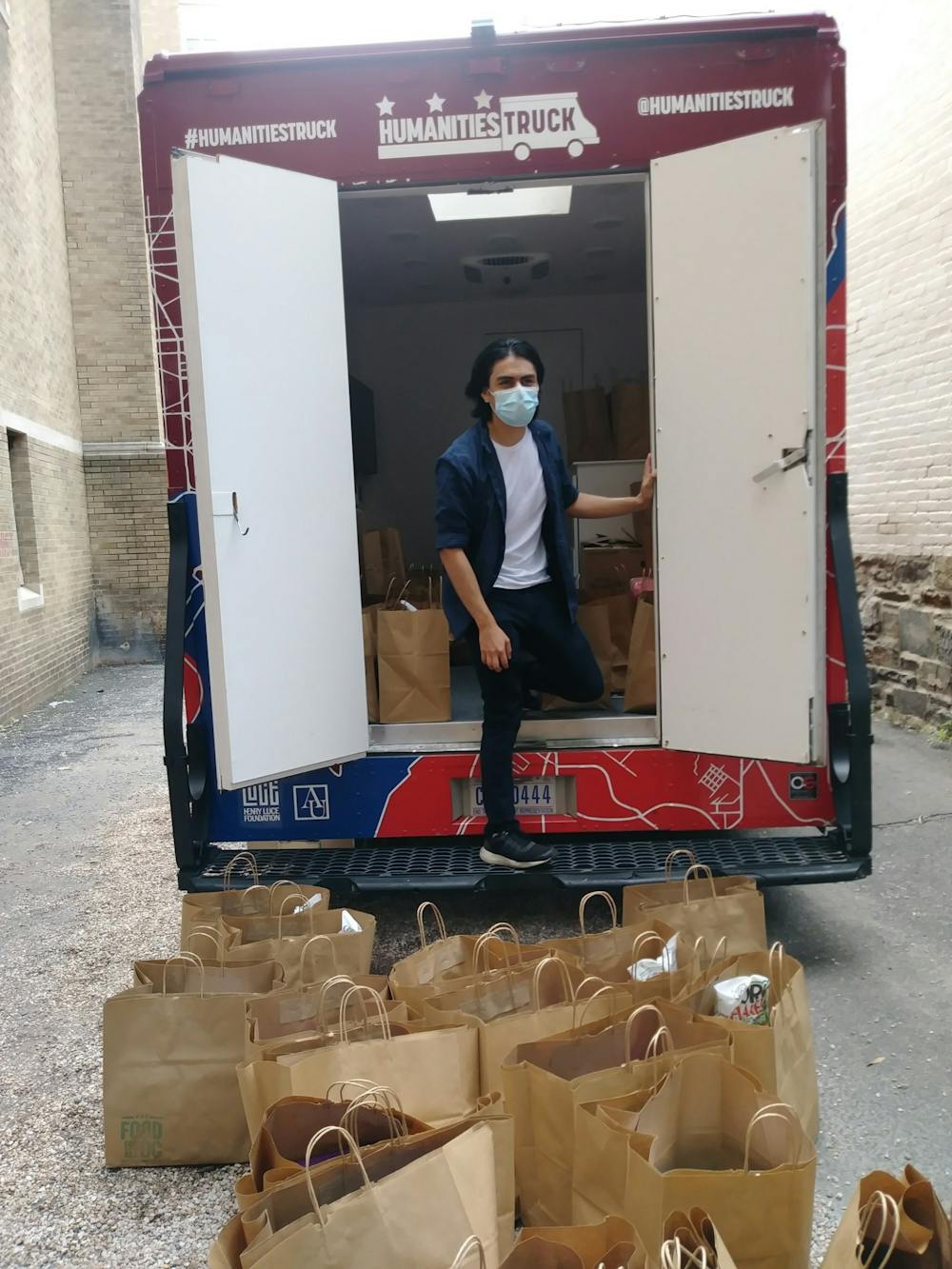Once a week, American University College of Arts and Sciences professor and Humanities Truck fellow Ludy Grandas loads up the Humanities Truck — modeled after a food truck but typically used for mobile humanities exhibits — with free food to bring to D.C.’s day laborer community. She meets them at a Home Depot in Northeast D.C.
“They respond with appreciation. They already know the truck,” Grandas said. “When I'm arriving, they're like, 'Hey, profesora, Hola profesora.’ So that's the kind of relationship that I want.”
Grandas and Naoko Wowsugi, another Humanities Truck fellow and CAS professor, have been using the signature truck to distribute food since this summer to communities in D.C. that have been economically impacted by the pandemic.
“The ways in which people share food is really how people build communities,” said Dan Kerr, Humanities Truck director and CAS professor. “I think it's kind of part of our larger core mission and it's just kind of a twist on it that the pandemic really pushed on us.”
With help from Trabajadores Unidos de Washington, DC and Food for All DC, Grandas packages and delivers groceries to the day laborer community every Friday. She often has help from student volunteers or people within Trabajadores Unidos, but other times she works alone.
“This is what community does for each other,” Grandas said.
Grandas has been a Humanities Truck fellow since April 2019, and began distributing food in early July with the intent to give back to the communities she has worked with in the past.
“[We’re] saying, ‘Here we are, also in a time of crisis,’” Grandas said. “It's not just whenever I want to do an exhibit.”
Grandas has worked with the D.C. day laborer community since 2015. In the past, they have visited her classes and worked with her students on assignments. She also used the Humanities Truck to curate an exhibit featuring photography taken by people from D.C.’s day laborer community.
Despite her connections to this community, she distributes the food from Food for All on a first-come, first-served basis, giving to anyone who asks.
Wowsugi uses the truck to help Kyanite Kitchen, a free pantry, distribute free food every Tuesday at the Minnesota Avenue Metro station. Like Grandas, she started as a Humanities Truck fellow in 2019, teaching arts and crafts to various communities in D.C.
Over the summer, Wowsugi also took the truck to Black Lives Matter protests in downtown Washington to support protesters and bring them food.
“With my humble power, granted from AU, I feel like I found a really great way to contribute to empower communities,” Wowsugi said.
Wowsugi and Grandas are two of the nine fellows who are working with the Humanities Truck until 2021. The fellowship normally lasts a year but was extended to two years due to the pandemic, which has significantly limited the ability to use the Humanities Truck for in-person events.
Its inside gallery is too small to accommodate socially distanced groups, and Kerr does not want people to gather around the truck and spread the virus.
“We're really kind of just putting our toes back in the water to see what makes sense, because we don't want to rush into anything, and we definitely don't want to be responsible for a mass superspreader event,” Kerr said. “So, we're trying to be cautious and careful, but also at the same time, be creative.”
Their most recent endeavor is an oral history called “From Me to You," in which people upload videos of themselves talking about their experiences in the pandemic directly to the Humanities Truck website where they are placed on a map of the world.
While future projects by the Humanities Truck team may be uncertain, Wowsugi said, “that food distribution work will continue as long as the communities need support.”
“As long as they need and as long as my schedule works, I'm committed,” Wowsugi said.





